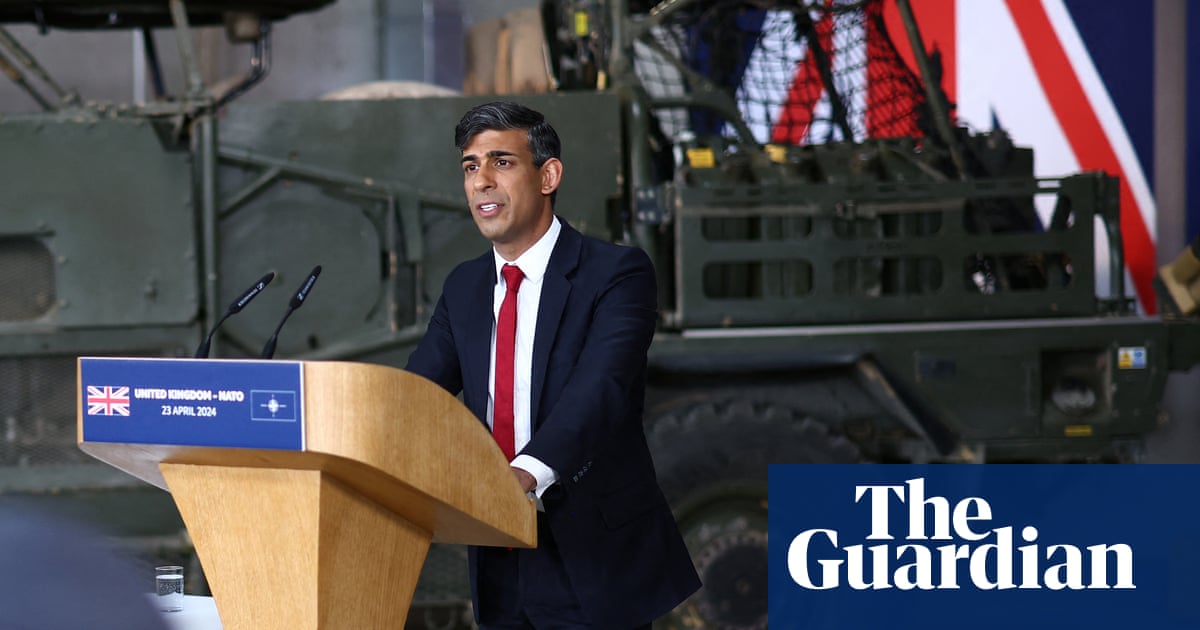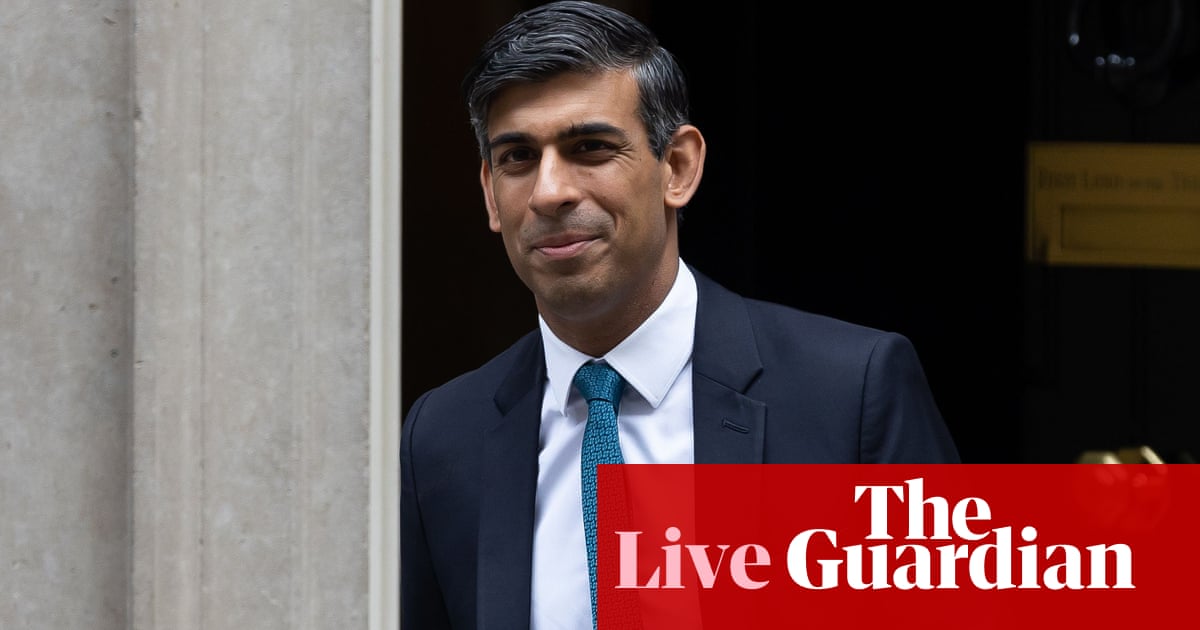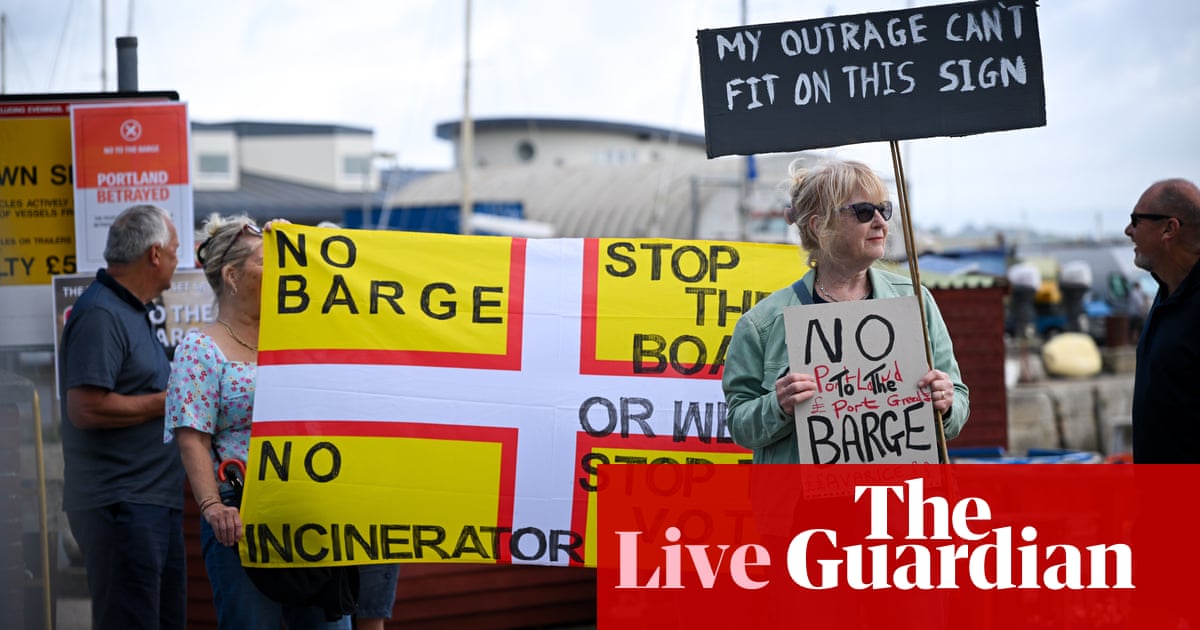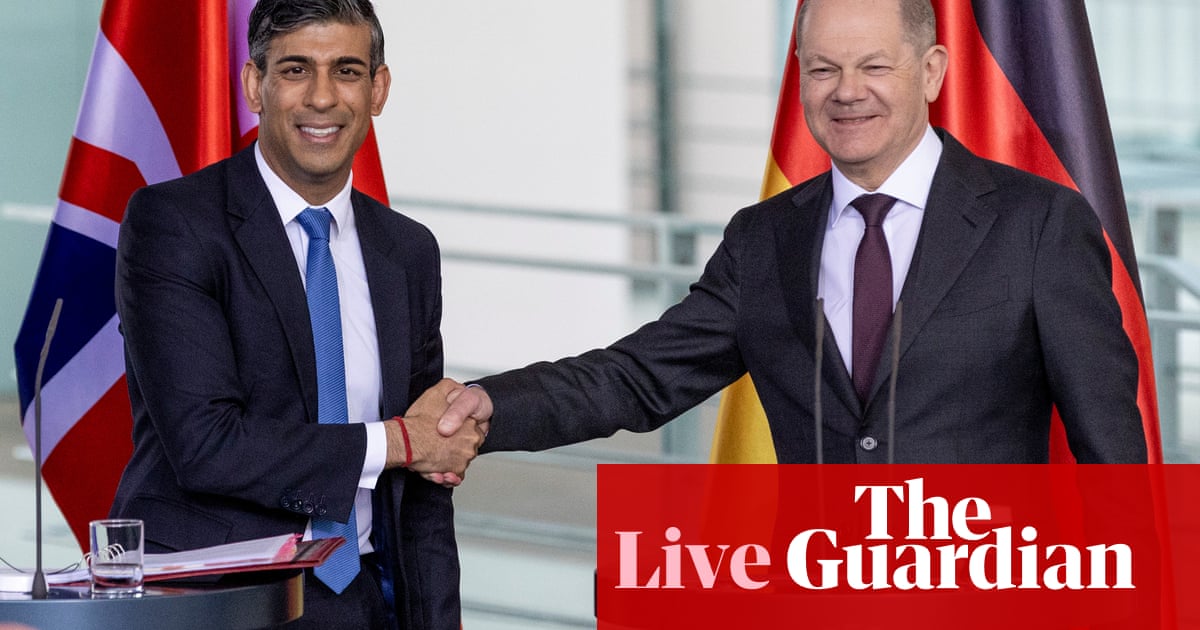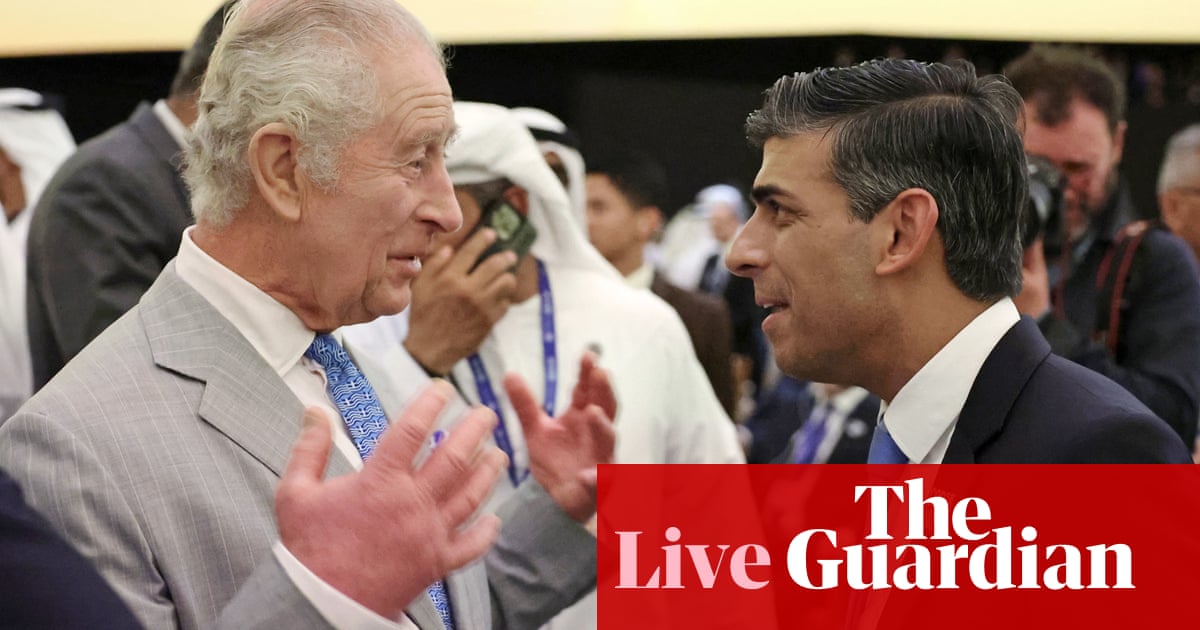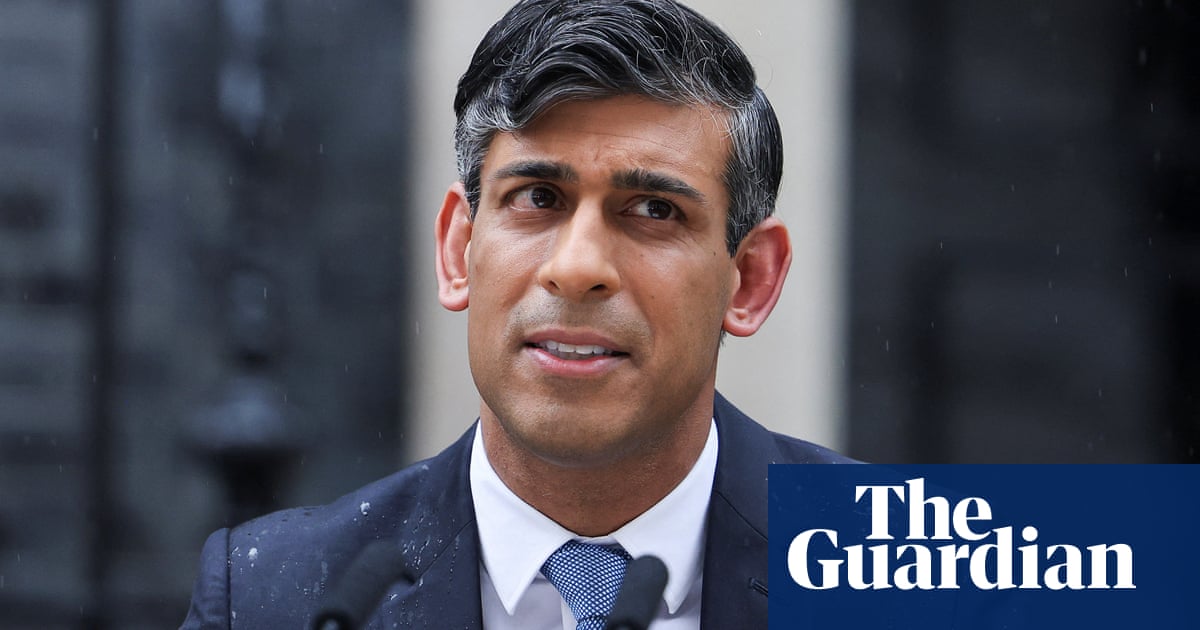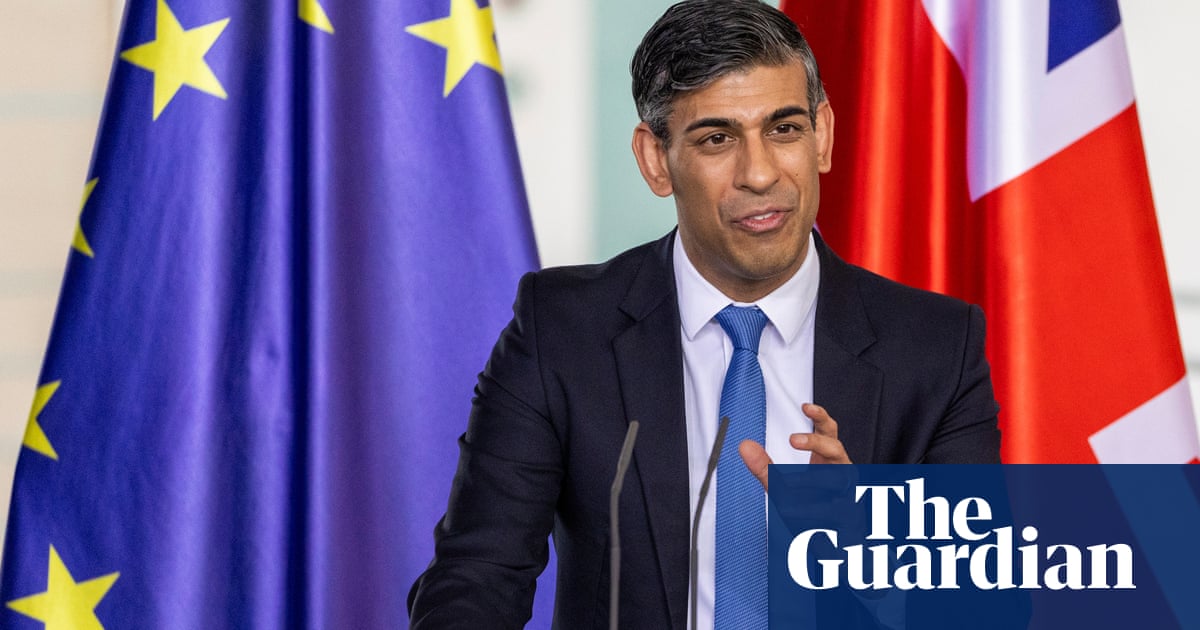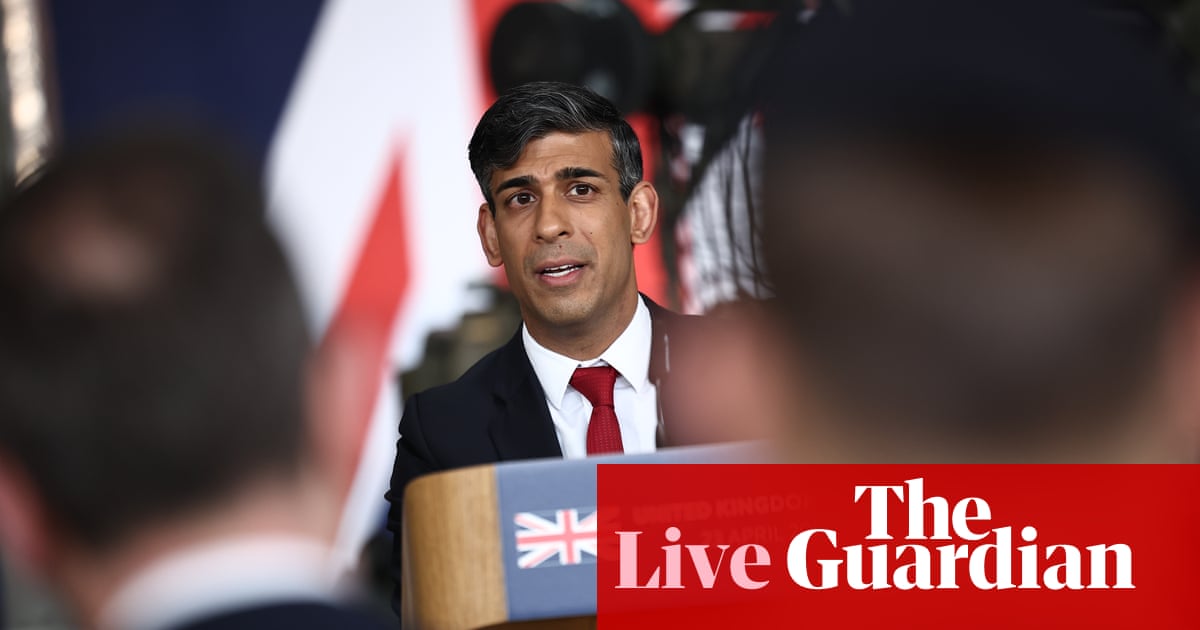
Sunak says defence spending in UK will be put on "war footing"
Sunak says he has three priorities for defence spending.
First, he says defence spending in the UK will be put “on a war footing’.
We will put the UK’s own defence industry on a war footing.
One of the central lessons of the war in Ukraine is that we need deeper stockpiles of munitions, and for industry to be able to replenish them more quickly.
So today, we’re giving £10bn in munitions to give industry long-term funding certainty, backed by long-term contracts, so they can produce more, be readier to surge capacity, and move to ‘always on’ production, when required.
From surface-to-air-missiles made in Bolton, to anti-tank weapons in Belfast, we will replenish our stockpiles, all while supporting British jobs right across the Union.
But it’s not just about investing more – we must invest better.
For too long, too much of our defence procurement has been over-complex, over-budget, and over-time.
So we are making radical reforms to our procurement model to make sure this new investment delivers value for money.
And to encourage private sector investment into defence production … I can also announce today that we’re going to put beyond doubt that defence investment does count towards environmental, social and governance assessments.
There is nothing more ethical than defending our way of life from those who threaten it.
Now all of this will put us at the forefront of the global defence industry, allow us to hugely ramp up defence production, and give our armed forces the capability they need to keep us safe.
Afternoon summary
Britain will boost its defence spending to 2.5% of national output by the end of the decade, Rishi Sunak has announced on a visit to Poland, as he warned the UK had to be equipped to meet the challenges of an increasingly dangerous world. But economic thintanks warned that Sunak could only achieve this through deep cuts to some areas of public spending. (See 4.40pm and 4.55pm.) And another thinktank, the Tony Blair Institute for Global Change, said the nature of defence spending chosen by government was more important than the size of the defence budget. In a statement it said:
In a world where the US and China spend more on defence than the next 38 highest spending countries combined, defence, for most countries, cannot simply be a funding race.
Metrics are useful but more important is what that spending goes towards. We need more modern capabilities, not simply more money. What that money is spent on can mean the difference between fighting the last war or winning the next one.
The Council of Europe’s human rights watchdog has condemned Rishi Sunak’s Rwanda scheme, saying it raises “major issues about the human rights of asylum seekers and the rule of law”.
Rishi Sunak has said he is confident Home Office staff will enact the Rwanda deportation scheme, despite fears that could put them in breach of international law.
Jeremy Hunt’s scope for a substantial pre-election tax giveaway has been hit after the latest set of official figures showed the UK’s public finances in worse shape than thought at last month’s budget.
One of Rishi Sunak’s dementia advisers has resigned over the government’s approach towards unpaid carers, describing the prosecutions of vulnerable people as “beyond the pale”.
Ben Wallace suggests Sunak has abandoned tax cut plan for Tory manifesto to make defence spending pledge instead
Ben Wallace, the former Conservative defence secretary, told Radio 4’s PM programme that he thinks Rishi Sunak will fund the MoD increase announced today by sacrificing a potential tax cut plan that might have been included in the Tory manifesto.
Wallace said he did not know the full details. But he told the programme that he spoke to Sunak this morning, and that Sunak told him he could fund this plan by abandoning “other commitments” that might have been in the manifesto. Wallace said:
Rishi doesn’t say anything on things like money without really going to the nth degree – more than I would.
I spoke to him this morning and he said, “Look, we decided we’re going to spend it on this. We had some other commitments we thought we may or may not do at the election, that we would introduce in the manifesto, and we’ve decided that this is going to be our priority.
So they have clearly, within No 10 and the Treasury, identified some extra spending. This is only speculation – some of that could be not doing a tax cut that might have happened, some of that could be not spending more in another sector of government.
But he’s clearly identified that. He was keen to talk to me.
If Sunak has abandoned plans for a tax cut in favour of plans to increase defence spending, he will be doing what Conservative party members want, according to a recent survey. (See 2.38pm.)
On the PM programme the presenter, Evan Davis, did point out that when Boris Johnson was prime minister, he also announced a long-term plan to raise defence spending to 2.5%. He aised the question as to whether, in the light of that, today’s announcement was very significant.
Davis was too polite to provide the obvious answer (which is that no promise from Johnson could ever be taken seriously), but Wallace did allude to it, saying Johnson and Sunak have very different approaches to making financial commitments.
My colleague Dan Sabbagh says the PM’s commitment to raise defence spending to 2.5% of GDP includes, not just the core MoD budget, but items like military support for Ukraine. Dan says this means the uplift is not quite as hefty as it sounds.
Check out the small print on Sunak’s defence pledge - includes money spent on Ukraine, Middle East/Yemen, parts of the intelligence budget too
So this takes defence spending on govt math to 2.32% of GDP - meaning that lifting to 2.5% by 2030 is not so dramatic
The SNP says the government could improve defence spending by abandoning the nuclear deterrent. Responding to the PM’s statement, Martin Docherty-Hughes, the SNP’s defence spokesperson, said:
The hollowing out of the armed forces won’t be reversed with a desperate smoke screen that will continue to see billions wasted on weapons of mass destruction, all while our infantry numbers sit at their lowest level in centuries.
Our dwindled armed forces, currently being left to put up with deteriorating living conditions and materiel supplies, won’t be made stronger while Labour and the Tories remain committed to sending billions into a nuclear blackhole.
And here are more comments on the PM’s defence spending announcement from commentators and journalists.
From Torsten Bell, chief executive of the Resolution Foundation thinktank
This is a lot easier to announce than deliver. This promise is for 2030 when the MOD doesn’t currently have a budget for 2025/26... and announcing it outside of a fiscal event means trade-offs/how it’s funding is completely ignored
Note this (and other) write ups totally ignore the implications. Post-election there are already plans to cut unprotected departments day-to-day spending by 13% and for capital spending to shrink. Totally impossible to deliver those plans & raise defence spending to 2.5% of GDP
The degree of fiscal commitments/fictions being built up for after this election is a real problem. @OBR_UK forecasts are already missing big spending to come (e.g on infected blood compensation) and premised on those cuts that can’t be delivered. Now this.
None of this is a comment on the wisdom of spending 2.5% on defence - world events will tell us what is required on that front. But this is a promise we’ve no idea if @RishiSunak or anyone else can/will remotely deliver, with no scrutiny of what it would take to deliver it
Here’s why this matters a lot. How has the welfare state expanded post war without huge increases in tax? By shrinking defence spending from 7% of GDP in 1948 to 2% in 2024 (meanwhile health spend has risen from 2% of GDP to 8%).
From Ben Chu, econonomics editor at Newsnight
Some context for the Rishi Sunak pledge today to raise UK raising defence spending to 2.5% of GDP by 2030 (up from current levels of around 2%)
In post-war historical terms that would represent only a relatively minor increase...
...Yet in today’s money an extra 0.5% of GDP works out as around £14bn (nominal GDP in 2024-25 is estimated by @OBR_UK at £2,785bn)...
...So finding that amount of extra cash for defence on the UK’s current lacklustre growth trajectory (without raising taxes or borrowing more) will obviously be challenging...
..And bear in mind the Government has only put in place individual departmental spending budgets up until 2024-25. Though it’s pencilled in *aggregate* departmental spending limits beyond then, based on 1%/year growth in day-to-day spending...
From the Guardian’s Gaby Hinsliff
Writing cheques that a Lab govt is going to have to cash, again (ie I think that defence spending is going to be necessary unfortunately; but don’t buy that it can be financed via spending cuts)
Sunak"s plan to increase defence spending implies deep cuts in some other public services, Institute for Fiscal Studies says
The Institute for Fiscal Studies thinktank says it is hard to see Rishi Sunak could raise defence spending to 2.5% of GDP by 2030 without some other departments facing deep cuts, given the Tories’ unwillingness to raise taxes. These are from Ben Zaranko, an IFS economist.
This is a big spending commitment (an extra 0.5% of GDP will be approx £17bn by 2030).
Notably, there’s no sign that overall spending plans have been topped up. So it’s implicitly coming from other areas.
Unprotected public services now face cuts of around 4% p.a. after 2025.
The precise number you get here depends on the precise assumptions you make (we have to make assumptions in the absence of any detail from government). But cuts of between 3% and 5% a year for unprotected budgets are on the cards. Compares to cuts of around 6% a year 2010-15
Ultimately, if we as a country need to permanently spend more on defence because the world has changed for the worse, we need to either 1) raise taxes or 2) consume less of something else (i.e. fewer public services).
Government is implicitly choosing 2) but won’t spell it out.
Also, the government has long had an “ambition” to increase defence spending to 2.5% of GDP - it’s not obvious to me what’s new. Labour have the same ambition.
The post-election Spending Review will be where this ambition meets fiscal reality
Here are two defence specialists on the PM’s announcement.
From Mark Urban, Newsnight’s diplomatic editor
The UK is to boost its defence spending to 2.5% of GDP by 2030. That’s very important:
- funding crisis on new kit goes away (for now…)
- vital reinvestment in ammo stocks - answer criticisms from former minister @JSHeappey + Tory back benchers
- challenge to Labour to match commitment
So we shouldn’t underestimate the importance of the moment, though saying it’s putting UK economy on ‘war footing’ is hyperbole (defence consumed 50% of GDP in 1944…)
From Dan Sabbagh, the Guardian’s defence and security editor
Sunak says UK’s defence industry should be “on a war footing” - two years after Ukraine war started. Europe’s slow military industrial response is being felt on the front line, where Russia is today gaining ground
The Ministry of Defence is presenting Rishi Sunak’s defence spending announcement as a £75bn uplift for the MoD budget. This is from Grant Shapps, the defence secretary.
JUST ANNOUNCED: Defence Spending will rise by £75bn over the next 6 years.
With the world becoming more dangerous we can’t afford not to act. That’s why we’ll invest unprecedented amounts to give our Armed Forces a game-changing advantage.
🧵Find out what this £75bn will do
MSPs express concern at Scottish government"s reluctance to fully endorse findings of Cass review
The past few weeks have been “shocking, upsetting and destabilising” for trans and non-binary young people in Scotland, Holyrood’s public health minister Jenni Minto told MSPs, as she took on opposition claims that her government has diluted its response to the Cass review in order to protect their governing partnership with the Greens.
Minto gave a statement to the Holyrood chamber this afternoon which succeeded in satisfying practically nobody.
The Greens – who will soon vote on whether to continue the Bute House Agreement with the SNP after members were aghast at last week’s ditching of climate targets – said that young people’s rights had been treated “like a political football” while Labour said the statement “lacked substance” and was “a sop to the Greens”.
Minto didn’t tell MSPs much they didn’t know already: the recommendations of the Cass review will be carefully considered by a multi-disciplinary team of clinicians, who will report back before summer recess; the Scottish government is already working with NHS Greater Glasgow and Clyde, where the current Sandyford gender service is based, on a nationally commissioned youth gender service; they are funding research at Glasgow University into the long term outcomes of gender healthcare.
But a number of MSPs cross-party expressed frustration that Minto could not simply accept the Cass recommendations. She countered that the review applied to NHS England and there were parts that could not simply read across – and she refused to engage with questions about Green co-leader Patrick Harvie, who has suggested the review is “not a valid scientific document”.
And these are from Kevan Jones, the Labour MP and former defence minister, showing what has happened to defence spending since the Conservatives have been in power.
The Prime Minister’s pledge on defence spending is just more Tory spin.
The last time the UK spent 2.5% of GDP on defence was in 2010, under a Labour Government.
After 14 years of the Tories, the defence budget is now 7% smaller than it was in 2010.




